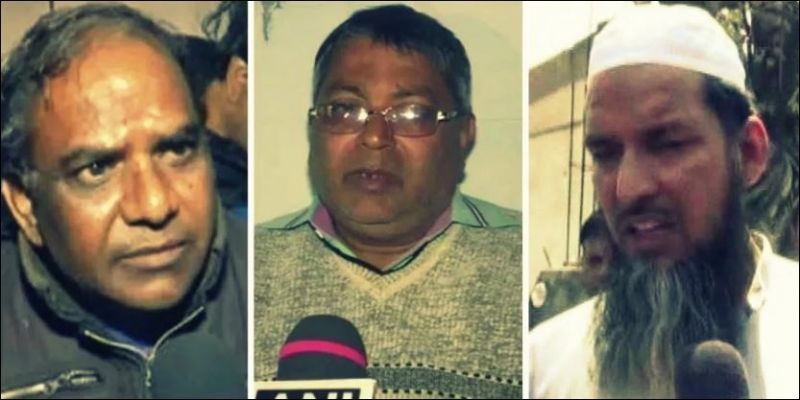It would be comforting for Yashpal Saxena that his voice has reached thousands of kilometres, and he got a response that he would have expected.
Iman Maulana Imdadul Rashidi of Asansol addressed Muslims in sheer sadness at the funeral of his son, but he did not want anybody else to lose his son. He said that he lived in that city for thirty years and if someone would even think of taking revenge, he would leave the place.
We do not know whether Maulana had heard Yashpal Saxena, immersed in his son’s death, in Delhi about two months ago. His son, Ankit Saxena, who wanted to marry a Muslim girl Shehzadi was killed by her family for being a Hindu.
He said, “Yes! Those who killed my son were Muslims, but it can not be blamed on every Muslim … I do not want any provocative rhetoric. I am very unhappy with what happened, but I do not want anyone (its excuses) to create an environment of hostility and hatred against Muslims.”
We do not know whether Saxena had thought about it. The consolation is seen to be a part of personal suffering when the misery is publicized it becomes obscene, though the struggle to give up your hardship is difficult.
Yashpal Saxena turned down the temptation, unlike Sushil Gupta of Kasganj. His son was killed in the violence, which was carried out on 26 January during the tricolour trip.
It was not possible for Sushil Gupta to know who killed him. He was not at the scene, but in the FIR he filed on the provocation of others, mentioned names of 20 people, including Salim. “They asked (boys) to raise slogans ‘Pakistan Zindabad’ to boys. My son was rebuked and stoned then got shot by Salim. He was injured and declared dead at the hospital.”
In addition to the FIR, Sushil Gupta sought a status of martyrdom for his son Chandan Gupta and said his life was in danger. Sushil Gupta’s response will be considered natural for today’s situation, but not Yashpal Saxena’s. Speaking of Sushil Gupta’s immediate reaction after Chandan’s death, he had also appealed for peace, but his stance changed with time.
Despite the efforts made by BJP’s allies trying to persuade him for changing his stand towards his son’s death, Yashpal Saxena was firm in his decision. BJP’s allies demanded a compensation of Rs 1 crore for Ankit’s murder and also tried to turn the case in a particular direction by calling it an ‘organized crime’. However, Yashpal Saxena did not fall into temptation.
On the other hand, Akram Habib, who failed to meet his pregnant wife visited Kasganj on January 26. Seeing tension in the town, he went to Aligarh along with his wife. On their way to Aligarh, he was surrounded by a mob who kept on thrashing him.
However, he was left to survive as one of the members of the mob had some humanity left in him. Although he lost one of his eyes in the attack, Akram said that he had forgiven those who had attacked him. “I am very happy that I could see the face of my daughter. And nothing matters to me. Those who did this to me, I do not hold any grudge against them.”
Chandan was now turned into a weapon against the Muslims but Yashpal Saxena did not let this happen.
Yashpal or Akram or Rashidi, it would be wrong to say that the slayers did not know what they were doing and therefore they should be forgiven. Nor the victims are talking of postponing the process of justice for murder and violence.
Their actions show that the act of revenge cannot replace justice. Every offence done should be followed by justice and those who commit crimes should not think of avoiding punishment. But in the current India justice has been replaced by revenge.
The author is Delhi University’s professor

